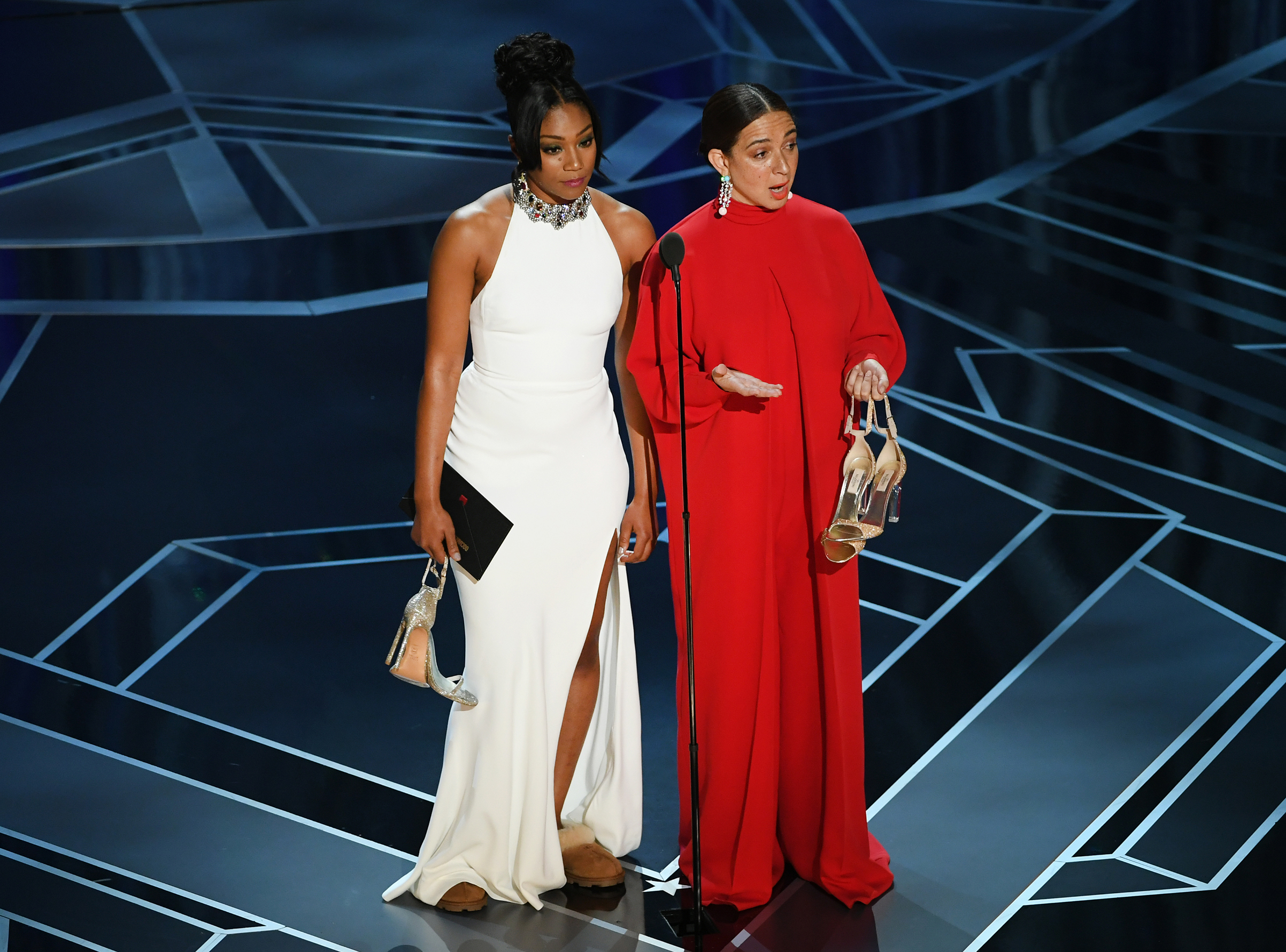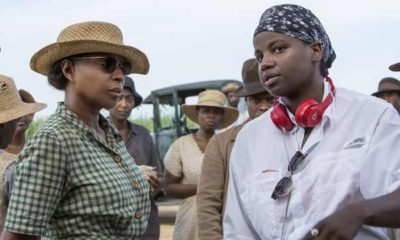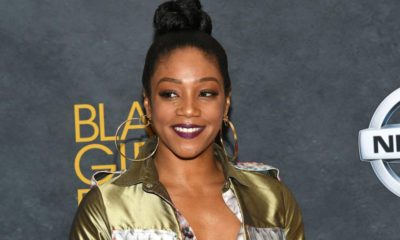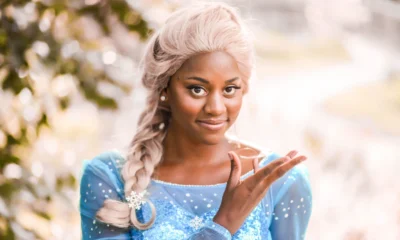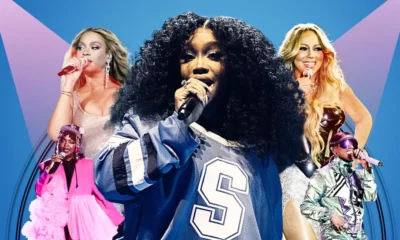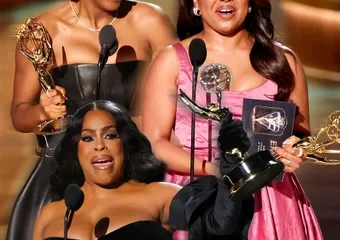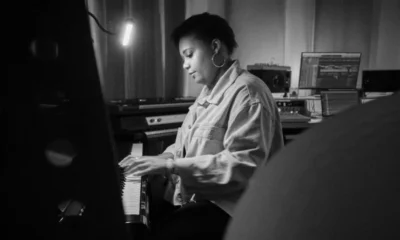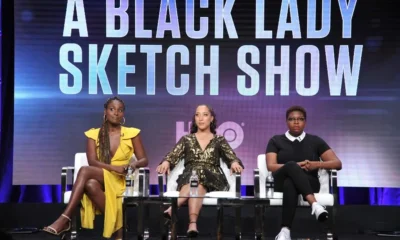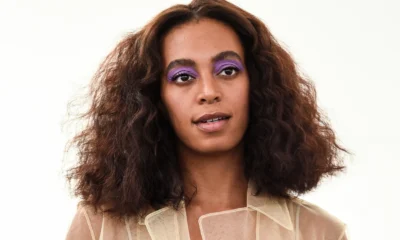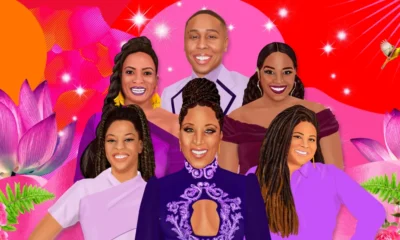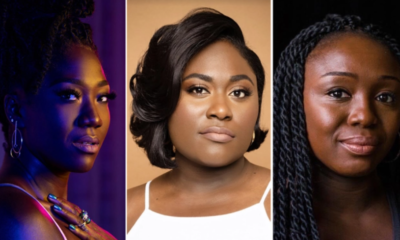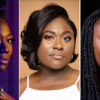Black Women in Entertainment
The Only Good Part Of The Oscars Was Its Blackest: Tiffany Haddish And Maya Rudolph
They were hilarious before they even said a word, walking out onto the crystalline Dolby Theatre stage, hand in hand, carrying their shoes, Tiffany Haddish rocking her cherished Alexander McQueen dress, Maya Rudolph with her air of slightly tipsy superciliousness.
This was the most memorable moment of a night with few memorable moments to speak of. For all their talk of representation, of new Hollywood ideals, the Oscars was a safe affair, the industry returning to the mean. But here was an enactment of the new ideal right in front of us: Tiffany Haddish and Maya Rudolph. On stage. Together. Being funny as hell, and black in their own ways.
Watch Tiffany Haddish and Maya Rudolph’s very funny #Oscars intro. pic.twitter.com/8VlvxK5l7N
— The A.V. Club (@TheAVClub) March 5, 2018
Watch Tiffany Haddish and Maya Rudolph’s very funny #Oscars intro. pic.twitter.com/8VlvxK5l7N
— The A.V. Club (@TheAVClub) March 5, 2018
Rudolph, deadpan, set up the joke: “We are so happy to be here, but a little nervous, too, because a few years ago people were saying the Oscars were so white,” she said.
Haddish, unapologetically ratchet, spiked it: “I know what you’re thinking. Are the Oscars too black now? Don’t worry. We were just backstage, and there are still a bunch of white people still to come.”
The two-minute bit, in which the pair mimicked “white people with clipboards … and headsets,” elicited genuine laughs from the auditorium and had people on social media clamoring for Haddish and Rudolph to host the next Oscars, star in a movie together or both.
Maya Rudolph and Tiffany Haddish appeared and I immediately screamed "Thelma and Louise reboot" at a stranger.
— Louis Virtel (@louisvirtel) March 5, 2018
Why are Tiffany Haddish and Maya Rudolph not hosting
— jay smooth (@jsmooth995) March 5, 2018
Hollywood loves to have “conversations” about diversity and representation in front of and behind the camera, ones that often hinge on what it means for the underrepresented to “see themselves” on screen. But rarely does the conversation delve into what it actually means to “see” yourself.
Which makes Haddish’s and Rudolph’s brief appearance as significant as it was hilarious. It’s noteworthy that two black women got to share space as equals and deliver some of the biggest laughs of the night. It’s even more noteworthy that, in seeing them together, we saw a striking testimony to two notions that are evidently still viewed in some circles as novel ideas: that two funny women can exist at the same time and that blackness is not a monolith.
Haddish and Rudolph have navigated their blackness in vastly different ways over their careers. Rudolph, who is biracial (her mother was singer Minnie Riperton), played everyone from Beyoncé to Michelle Obama during her tenure on “Saturday Night Live.” She had to be something of a chameleon in that respect, gracefully taking on the burden of being “every” black woman (an impossible task) while injecting her own brand of sly humor into every skit.
Haddish, on the other hand, has built her stardom over the last five years by being and doing one thing. She is loud, brash and sometimes crass, traits that for many white female comics (Amy Schumer, Sarah Silverman) are considered edgy but for many black female comedians can either become a liability or a gimmick. Haddish’s blackness is deeply woven into her comedy, but it isn’t a shtick either, and that’s what makes her so refreshing.
Together, however briefly, Haddish and Rudolph represent a kind of comedy ideal: a world in which black women of vastly different backgrounds and perspectives can be funny without code-switching, without recalibrating their blackness for the benefit of white folk. And that’s why the bit worked. Though the two are wildly different, they share….
Read More: The Only Good Part Of The Oscars Was Its Blackest: Tiffany Haddish And Maya Rudolph



